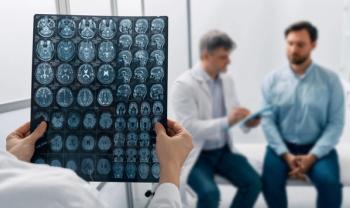
Study: Sociodemographic Factors Affect Access to Migraine Care
A study presented at the American Academy of Neurology’s 73rd Annual Meeting explored the fundamental barriers to good medical outcomes in migraine.
Sociodemographic factors play an important role in access to care for episodic migraine (EM) and chronic migraine (CM), according to an abstract presented at the American Academy of Neurology’s 73rd Annual Meeting, being held virtually April 17 to 22, 2021.
The study aimed to assess rates of traversing fundamental barriers to good medical outcomes in individuals with EM and CM, as well as sociodemographic barriers. According to the investigators, barriers include lack of appropriate medical consultation, failure to receive an accurate diagnosis, not being offered a regimen with acute and preventive pharmacologic treatments, and not avoiding acute medication overuse.
Barriers were assessed based on responses to the US Internet-based Chronic Migraine and Epidemiology and Outcomes Study from individuals who met modified International Classification of Headache Disorders, 3rdedition, criteria for migraine. Respondents who were included also had a Migraine Disability Assessment score of grades ≥2 and provided health insurance status.
Of the 16,789 respondents with migraine, a total of 9814 met eligibility criteria. Among these respondents, 27% of individuals with EM and 40.8% with CM reported current headache consultation. Among consulters, 75.7% from the EM group and 32.8% from the CM group were accurately diagnosed. Among diagnosed consulters, 59.9% of the EM group and 54.2% of the CM group reported minimally appropriate acute and preventive pharmacologic treatment. Among diagnosed and treated consulters, 31.8% of those with EM and 74.7% with CM met acute medication overuse criteria, according to the results.
Only 8.5% with EM and 1.8% with CM traversed all 4 barriers, the investigators wrote. According to the results, higher income was associated with increased rates of traversing each barrier.
“Efforts to improve care should focus on increasing consultation and diagnosis rates, improving delivery of guideline-based acute and preventive treatment, and avoidance of medication overuse,” the investigators concluded.
Reference
- Buse DC, Armand CE, Charleston IV L, Reed ML, et al. Assessing barriers to care in episodic and chronic migraine: Results from the Chronic Migraine Epidemiology and Outcomes (CaMEO) study. Presented at: American Academy of Neurology 73rd Annual Meeting; April 17-22, 2021; Virtual. Accessed April 20, 2021.
https://index.mirasmart.com/AAN2021/PDFfiles/AAN2021-001144.html
Newsletter
Pharmacy practice is always changing. Stay ahead of the curve with the Drug Topics newsletter and get the latest drug information, industry trends, and patient care tips.























